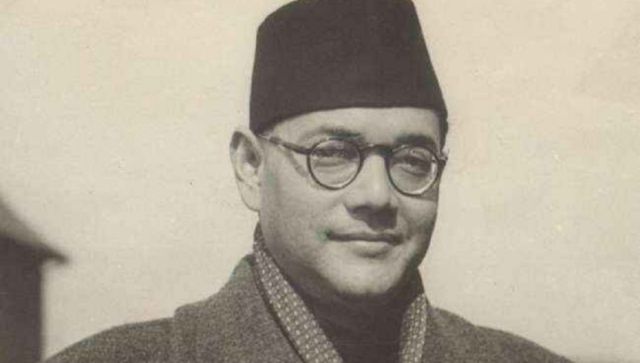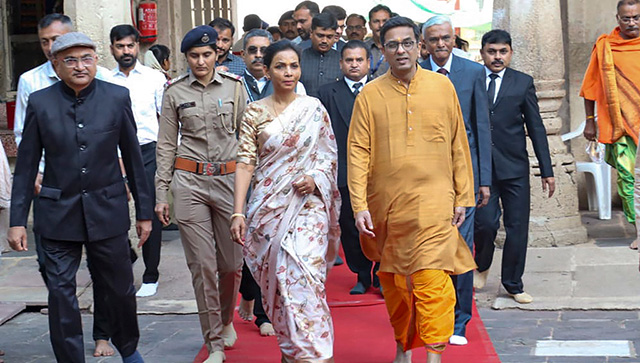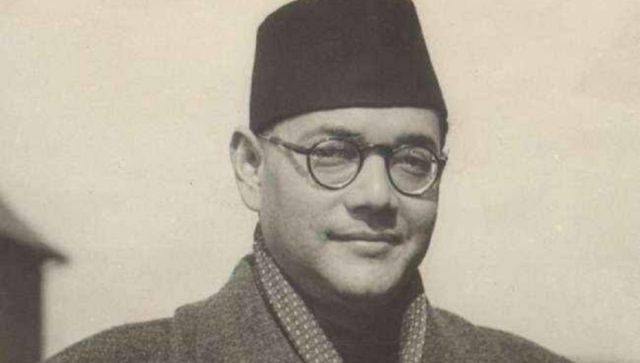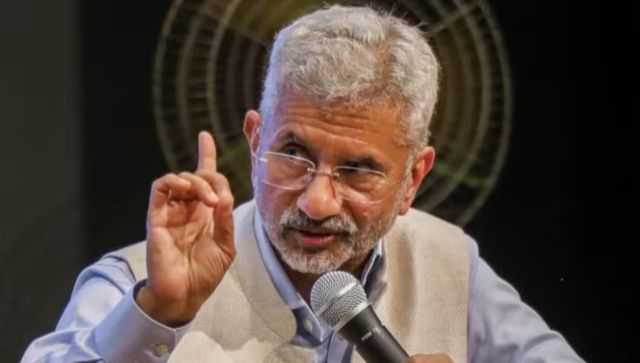The trouble with historians and biographers is that they are human. They tend to fall in love (or hate, occasionally) with their subjects. Whether you are writing about Genghis Khan or Gandhi, one a mass killer and world marauder and the second an exponent of non-violence, their first major historian-biographers (John Man and Louis Fischer) have tended to be hagiographers. Sober assessments tend to come later.
Jawaharlal Nehru is not in the same bracket as either Khan or Gandhi, but historian Ramachandra Guha is his hagiographer, and treats him as India’s most important political hero post-independence. Which is why he is happy to make adjustments around the truth to make his claims on Nehru’s greatness work. In a recent column in Hindustan Times , Guha is happy to give Sardar a near-equal status by claiming they were not rivals, but comrades. The new politics of the Left post-Modi is to rehabilitate Patel in order to defend the faltering Nehruvian legacy.
In Guha’a scheme of things, Nehru is the author of modern India, the arch secularist, the ultimate-nation-builder. And if, for this purpose, Patel needs to be given a higher sense of equality in status, so be it. This thought never occurred to any Left/Marxist historian earlier, where the consensus was that Patel was a useful sinew in the independence struggle, but someone was a closet communalist. They purged him from memory, or dismissed him as unimportant in their scheme of retelling history.
I have no doubt Nehru was a great Indian patriot in his own way. He did what he thought was best was the country, but any final assessment of Nehru cannot be made on the basis of what may have been his best intentions. He has to be judged by the results achieved by him. Nor should one attribute things to him that don’t belong to him.
For example, is India’s robust secularism the result of Nehru’s tireless work or evidence of a 5,000-year Hindu-Buddhist-Jain civilisational process that did not privilege any god and gave every individual a right to choose his route to god? In the Hindu scheme of things, you can choose your form of worship, or even remain a disbeliever. Religion was not the bone of contention it is under exclusivist Abrahamic faiths.
India is secular and plural because of its civilisational ethos of acceptance of difference. Nehru or Akbar were beneficiaries of this ethos – not the creators. If anything, Nehru’s rabid minorityism post-partition paved the way to truly communal politics where a radical Hindu fringe emerged precisely because of the “secular” power elite’s inability to comprehend this priceless Hindu heritage. Pandering to minority obscurantism was renamed as secularism.
Guha needs acknowledge this as much as Nehru’s contribution to democracy.
The question to ask is why has Patel, till recently a near-pariah with the Marxists and unmentionable in the Congress for allegedly being a less-than-secular leader, become so important to Guha and the secularists now? The answer is, of course, Narendra Modi’s decision to appropriate his legacy. Modi actually did not do anything unique. The Sangh had always thought more highly of Patel than Nehru, but after Modi elevated the game, it became important to restore Patel’s place in the Congress hierarchy. The fact that Patel, after Gandhi’s assassination, briefly banned the RSS came in handy to enable this re-embracing of the Sardar.
Even though it is fair to say that Patel and Nehru were in the same party and, hence, comrades in a general sense, this was largely because Gandhi ensured Nehru’s pole position, and Patel acquiesced. Otherwise, they were like chalk and cheese. To know how different they were in terms of approaches to various issues – from economic policy to geopolitics to the post-partition communal situation - read this excellent piece by Saurav Basu in Swarajyamag.com , a new online publication of the economic right.
It should be obvious to anyone that Patel was a down-to-earth leader who had a far better understanding of India and its challenges than Nehru, despite the latter writing several books on the subject. The problem was Nehru was Brahminical in his disdain for his Hindu origins, while Patel, despite his roots, was more inclusive and had no self-loathing about who he was and where he came from.
Given his wide reading and international exposure, Nehru was certainly good at looking at the big global picture, but he drew woolly conclusions about India’s place in it. Patel, despite his lack of global exposure, had an instinctive feel for realpolitik and power. His hand at the steering would have made India a global power by now. But that was not to be.
In contrast, Nehru was wrong in almost all his decisions – whether it was the creation of a socialist state, his policies on Tibet and Kashmir, or tolerance for minority communalism. Patel was the guy who had a better grip on India. Nehru was the guy who failed to solve almost anything he touched, and left us a legacy of exacerbated crisis.
Despite the fact that Patel was the go-to man for India (except for other-worldly speeches, where Nehru was far better), Guha’s ideal leader is still Nehru. And the reason why he has now had to put them together on the same pedestal is Modi. Guha brings in Modi fairly early in his argument and illustrates my point: As Guha writes: “There are two ironies in Modi’s invocation of Patel. First, Patel was himself a lifelong Congressman; indeed, as home minister, it fell to him to ban the Rashtriya Swayamsewak Sangh after the Mahatma’s murder. Second, Nehru and Patel were in fact not rivals but comrades and co-workers. They worked closely together in the Congress from the 1920s to 1947; and even more closely together thereafter, as prime minister and deputy prime minister in the first government of free India.”
But even spouses in bad marriages stay together. Moreover, the Congress was less a political party and more a platform before independence: every group, from the Hindu Mahasabha to the Muslim League to the princes of semi-independent states, has had a history of participating in its deliberations some time or the other. It was only closer towards independence that the Congress became a full-fledged political party.
Patel’s key role in partition was that he was the first major leader (apart from Rajaji) in the Congress to accept the idea of partition - something which Maulana Azad clearly emphasises in his book India Wins Freedom. Nehru was the next to be convinced, for his own reasons, and Gandhi after that. Azad was the only one unreconciled to partition.
Even though this makes Patel sound like he accepted the two-nation theory rather quickly, the reality is that the Muslim League had made working together impossible with its obstinacy. Liaquat Ali, who was finance minister in the interim government, stymied every move of Patel to get things done as home minister. By accepting the reality of partition, Patel paved the way for India to demolish the two-nation theory in practice - and this had less to do with Nehru’s secularism and more with the 5,000-year Indic approach to religious tolerance and pluralism. Patel understood that staying together was equivalent to killing the secular project altogether.
The point is: Nehru and Patel were poles apart on substantive issues. The fact that they stayed together in the same tent is more an accident of history and the result of Patel’s short life-span after independence. But for Gandhi, we would have had them in separate parties, leading the country towards separate destinies. The Congress and Guha have had to rehabilitate Patel and bring him mainstream to protect the fraying Nehru legacy.
That’s why history is being retold, Guha-style. Our eminent historians are doing a rethink on Patel.


)




)
)
)
)
)
)
)
)